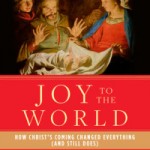How much do I love the Church?
Do I pray for her?
Do I feel part of the family of the Church?
What am I doing to make it a community in which everyone feels welcomed and understood, feels God’s mercy and love that renews life?
Pope Frances posed these questions during his Wednesday audience (in the rain that didn’t seem to bother the crowds).
He said: “Faith is a gift and an act that has to do with us personally, but God calls us to live our faith together, as a family, as the Church.”
He reflected:
there are some who say: “Christ yes, the Church no.” Like those who say: “I believe in God, but not in the priests.” But it is precisely the Church that brings us Christ and brings us to God. The Church is the great family of the children of God.
He added:
Of course it also has human aspects. there are defects, imperfections, and sins in those who make her up, pastors and faithful. Even the Pope has them, and many. But what is beautiful is that, when we realize that we are sinners we encounter the mercy of God who always forgives. He never forgets us. He gathers us up in his love of forgiveness and mercy. Some say that sin is an offence against God, but it is also an opportunity for the humility to realize that there is something better: God’s mercy. Let’s think about this.
The Church, he said:
is born of God’s desire to call all men and women to communion with him, to friendship with him, even further, to participate as his children in his very divinity. The word “Church” itself, from the Greek “ekklesia,” means “convocation.” God calls us, urges us to leave selfishness behind, the tendency to be wrapped up in oneself, and calls us to be part of his family. This call has its origins in creation itself. God created us so that we might live a relationship of profound friendship with him and, when sin cut off that relationship with him, with others, and with creation, God did not abandon us. The entire story of salvation is the story of God seeking humans, offering us his love, gathering us to him. He called Abraham to be the father of many; He chose the people of Israel to forge a covenant that embraces all peoples; and he sent, in the fullness of time, his Son so that his plan of love and salvation might be fulfilled in a new and eternal covenant with all of humanity.”
As always, he points to the Gospels:
“When we read the Gospel we see that Jesus gathers a small community around him that welcomes his word, follows it, shares his journey, becomes his family. And with this community He prepares and builds his Church.” It is a Church whose origin lies in the “supreme act of love on the Cross, in Jesus’ opened side from which flow blood and water, symbol of the Sacraments of the Eucharist and Baptism. In the family of God, in the Church, the lifeblood is God’s love that is made concrete in loving him and others, all, without distinction or limits. The Church is a family in which we love and are loved.” The Church is made manifest, as on Pentecost, “when the gift of the Holy Spirit fills the hearts of the Apostles and compels them to go out and begin the journey to proclaim the Gospel, to spread God’s love.”
At Mass before the general audience, he shared this personal encounter of the grace of family life in the Church:
I remember once, I was in a dark moment in my spiritual life and I asked a favor from the Lord. Then I went to preach the annual spiritual retreat to nuns and on the last day the made their confession. One elderly nun, over 80 years of age, but with clear, bright eyes came to confession: she was a woman of God. In the end I saw that she really was a woman of God so I said “Sister, as penance, pray for me, because I need a grace, ok? If you asks the Lord for this grace on my behalf, I am sure to receive it.” She stopped for a moment, as if in prayer, and said, “Of course the Lord will grant you this grace, but do not be deceived: in His own divine manner.” This did me a lot of good. To hear that the Lord always gives us what we ask for, but in His own divine way. And this is the divine way to the very end. The divine way involves the Cross, not out of masochism: no, no! Out of love. For love to the very end.
And he pleads with us, as he does, that we pray an ever-timely prayer:
We ask the Lord for the grace that we may not be a half-way Church, a triumphalist Church, of great successes, but a humble Church, that walks with decision, just like Jesus. Forward, forward, forward. With a heart open to the will of the Father, just like Jesus. We ask for this grace.
Thanks to the Vatican Information Service and Vatican Radio for the translations.












